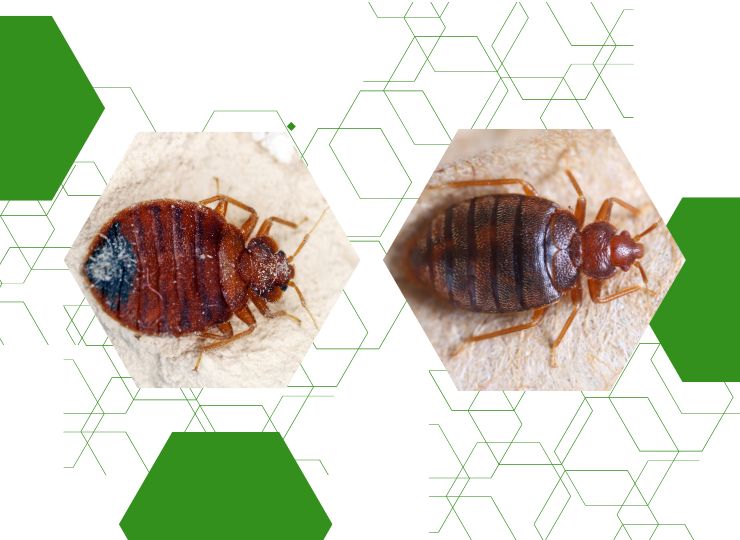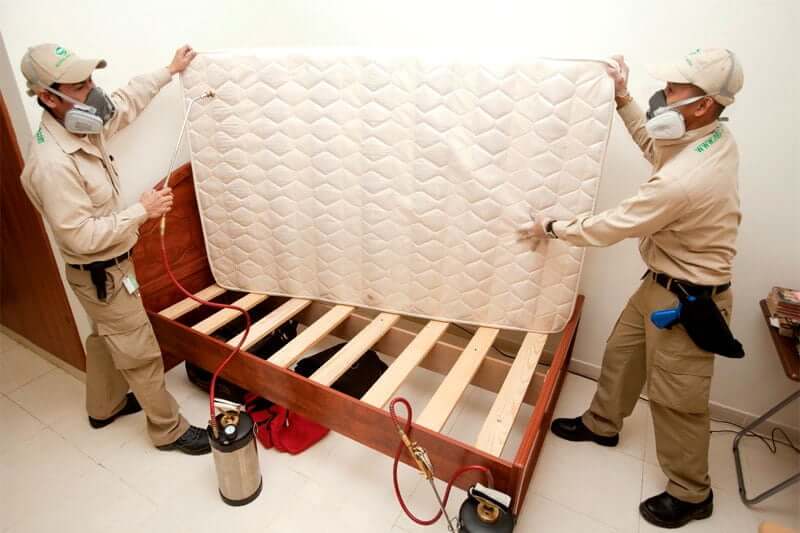Obtain Enlightened About the Types of Bug Control Methods and Their Benefits for Property Owners
Comprehending the different insect control approaches offered to property owners is essential for reliable bug administration. Home owners that are knowledgeable can make critical selections that not only address pest issues but additionally enhance the general quality of their living setting.
Chemical Bug Control Approaches
Chemical parasite control approaches are a vital component of integrated bug management approaches for home owners looking for effective solutions to pest invasions. These methods involve the application of chemical substances created to eliminate or deter bugs that intimidate personal effects, health and wellness, and comfort. Typical chemicals utilized include insecticides, herbicides, fungicides, and rodenticides, each tailored to target details pests.
The main advantage of chemical parasite control is its quick efficiency; many solutions offer instant results, decreasing pest populations considerably in a brief time. In addition, developments in chemical formulations have actually resulted in items that are much more ecologically friendly and have reduced poisoning degrees for non-target organisms when used correctly.

Biological Pest Control Techniques
All-natural bug control techniques have actually obtained importance as house owners look for more secure and much more sustainable options to conventional chemical techniques. Biological pest control methods utilize all-natural predators, parasites, or virus to manage parasite populations efficiently. This method is not only eco-friendly however likewise lessens the risk of damage to non-target types, consisting of advantageous bugs and wild animals.
One of the most common biological control techniques involves introducing natural killers right into the atmosphere. Ladybugs can be utilized to control aphid populaces, while nematodes target soil-dwelling pests like grubs. In addition, parasitoids-- organisms that reside on or within a host-- can be used to regulate specific pest types by laying eggs inside them, ultimately resulting in their death.
Another strategy is the usage of biopesticides, which are acquired from all-natural materials such as plants, bacteria, or minerals (bed bug exterminator). These products can successfully target insects while posturing minimal risk to family pets and human beings. Generally, biological parasite control methods provide home owners with a reliable ways of bug management that aligns with ecological principles, promoting a much healthier living environment while decreasing reliance on artificial chemicals
Mechanical Insect Control Methods
Mechanical bug control approaches incorporate a selection of approaches that literally stop or remove bugs without using chemicals. These methods are specifically useful for property owners seeking eco-friendly options while making sure the safety and security of their living spaces.
One typical technique is making use of obstacles, such as screens, webs, and catches, which avoid pests from entering homes or details areas. For example, mounting home window displays can properly maintain pests out, while utilizing physical barriers around yards can deter bigger parasites like rabbits or deer. Furthermore, mechanical traps designed for rodents can catch and remove these bugs without the need for harmful substances.
Another effective strategy includes making use of brooms and vacuums to get rid of bugs straight from surface areas. Routine cleansing and upkeep can dramatically lower pest populaces by eliminating food sources and hiding areas. Employing gadgets navigate to this site like ultrasonic parasite repellents can deter different insects through audio waves that are undesirable to them however inaudible to human beings.
Social Pest Control Practices
Cultural parasite control techniques concentrate on customizing the setting and administration methods to produce problems that are less for pest invasions. These methods are essential in preserving a well balanced environment and reducing the dependence on chemical interventions. By altering agricultural methods, house owners can properly prevent insects while promoting plant wellness.
One usual technique includes crop turning, which interferes with the life cycles of bugs by altering the kinds of plants grown in a certain location (bed bug exterminator). This not only minimizes pest populations but additionally boosts dirt wellness. Additionally, intercropping-- growing diverse crops in proximity-- can puzzle insects and minimize their ability to situate their recommended host plants
Water monitoring is another essential aspect of social techniques. Proper watering strategies can avoid standing water, which functions as a reproduction ground for mosquitoes and other bugs. Moreover, maintaining sanitation around the home, such as frequently removing particles and food waste, can dramatically reduce bug attraction.
Incorporating these social techniques into a thorough pest monitoring strategy allows homeowners to develop an atmosphere that normally discourages parasites, thus enhancing the efficiency of various other control approaches while advertising lasting gardening and landscaping.

Integrated Bug Management Approaches
Integrated Parasite Management (IPM) represents an all natural method that combines various methods to efficiently handle pest populaces while lessening ecological influence. This methodology integrates organic, social, physical, and chemical methods to achieve sustainable parasite control. By analyzing pest populaces and their all-natural adversaries, IPM highlights surveillance and identifying insects before applying control procedures.
One of the core concepts of IPM is the usage of thresholds, which establish the degree of parasite activity that requires intervention. This makes sure that treatments are applied just when needed, decreasing the dependence on chemical pesticides. Organic control approaches, such as introducing natural killers or parasites, work in combination with social techniques like plant turning and habitat control to disrupt pest life process.
Furthermore, IPM urges the usage of least-toxic chemical options when treatment is needed, focusing on products that posture marginal threat to non-target microorganisms and the environment. For property owners, taking on IPM approaches not just boosts the efficiency of parasite monitoring however additionally promotes a much healthier living environment, promoting biodiversity and lowering chemical direct exposure. Ultimately, IPM empowers property owners to make informed decisions that stabilize parasite control with eco-friendly obligation.
Verdict
In conclusion, comprehending why not try here the numerous parasite control techniques equips house owners to make enlightened decisions relating to pest monitoring. Each approach-- chemical, organic, mechanical, social, and incorporated bug click here for info management-- uses distinct advantages that cater to various demands and choices.
Recognizing the numerous pest control methods readily available to homeowners is vital for effective insect administration.Chemical insect control approaches are a vital component of incorporated bug monitoring approaches for house owners seeking effective options to pest infestations. Overall, organic bug control techniques offer house owners with an efficient ways of pest monitoring that aligns with eco-friendly concepts, promoting a much healthier living atmosphere while reducing dependence on synthetic chemicals.
Cultural pest control methods concentrate on modifying the atmosphere and administration strategies to develop problems that are less helpful to pest invasions.In verdict, understanding the various bug control approaches equips property owners to make educated choices concerning pest management.